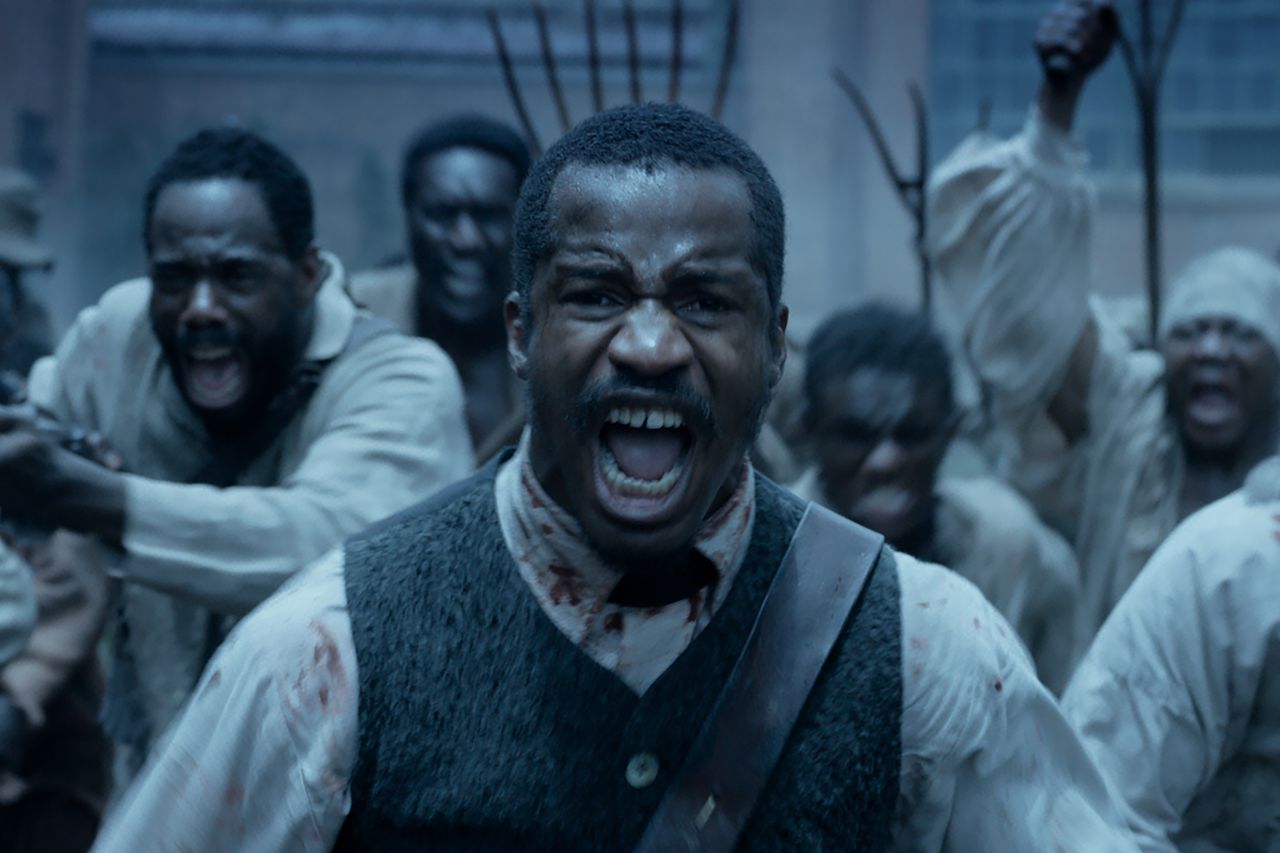This year, for the first time in many years, I vowed that I would do something other than review the TIFF films I've seen. My thoughts were that I would write a short essay relating to themes about the films themselves. We could not have started the film festival with a bigger bang - Birth of a Nation - directed by Nate Parker.
This film is, undoubtedly, a substantial and important piece of cinematic art, by a relatively unknown entity. It is rare that the slow holocaust, which slave ownership in the Americas represents, has been documented by a black artist (with the notable exception of Steve McQueen's 2013 film 12 Years a Slave). Parker is a triple threat - he wrote, directed, and starred as Nat Turner, the leader of the 1831 slave rebellion in Virginia.
Parker was astute enough to coop the name of the most famous pro-KKK film of all time by D.W. Griffith's, a silent film masterpiece, clouded with its own controversy. Who could forget the image of the "heroic" KKK riding to the rescue of the imperilled Southern whites at the end of the film?
Now we learn, with shock and revulsion, after our initial excitement about this new film that there was another imperilled individual at the centre of the film's controversial reception - the alleged 1999 rape of Parker's classmate at Penn State. It gets more complicated. The alleged co-assailant was Jean Celestin who co-wrote the screenplay for Birth. Parker was acquitted; Celestin was convicted of sexual assault. The charge against Celestin was overturned some years later when a judge ruled his trial attorney was ineffective in his defense.
I won't enumerate the details too closely here. They are easily accessed. The actions of the two men, during, and immediately after, were sordid and very disturbing and many would say completely inexcusable. How to reconcile this with the raw and beautiful and horrifyingly detailed film we saw?
The depiction of slavery in the film is vivid - perhaps too vivid for some - the relentless lynchings for minor transgressions, the frequent beatings of slaves, the forced feeding of slaves who refused to eat, the rape of slave women, the sexual exploitation of female children, the on-going terrorization and persecution, the dehumanization. It's all there ... sadly it builds to a righteous crescendo for the film viewer. We witness the daily indignities and horrors that the slave Nat Turner endures until it reaches an unstoppable breaking point leading to the rebellion which lasted for 48 hours and lead to the massacre of 60 odd members of slave holding families (including his own “master” Sam Turner) as well as the killing of many more blacks - free and slave - by vindictive white forces after the rebellion is quelled.
But it s not merely the ugliness that is depicted so well ... it is the beauty of a slave mother's love for her son, for that son's love for his grandmother, the love between husband and wife, the joy expressed at a "wedding" between two slaves who clearly adore each other (Colman Domingo and Gabrielle Union), the care with which the tortured, whipped son (Parker) is administered by his family and clan. Parker captures it all. The rage, the love, the courage, the indignity, the bravery, the sense of community, the wasted human potential and talent.
***
What does a sentient being with progressive views do with this information about Parker? What did we do when we learned of Roman Polanski's rape of a thirteen year old in the 1970s? (“It was a different time,” some say with sage nod.) Or the allegations surrounding Woody Allen's molestation of his adopted daughter Dylan? For many admirers (myself amongst them), we did nothing. Or - in a different artistic field – how did we process the information of Pablo Picasso's brutal physical treatment of the women in his life? Or Miles Davis?
Roxane Gay, a prominent black feminist whom I respect a great deal, wrote a convincing opinion piece called "Nate Parker and the Limits of Empathy" in the NYT to the effect that she cannot separate the artist from the art and won't be seeing the film. Nor can I at times if I am honest. Parker, unfortunately, will be imbedded in my consciousness as the talented director/likely rapist. I was conflicted about how to proceed and how much to support the film.
~









No comments:
Post a Comment